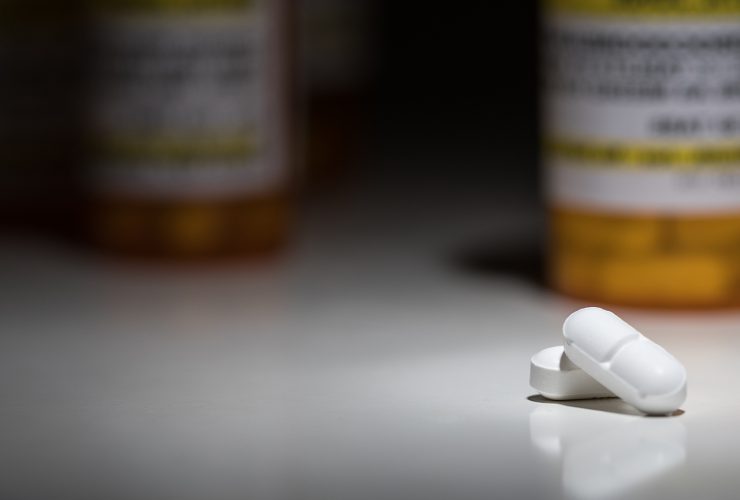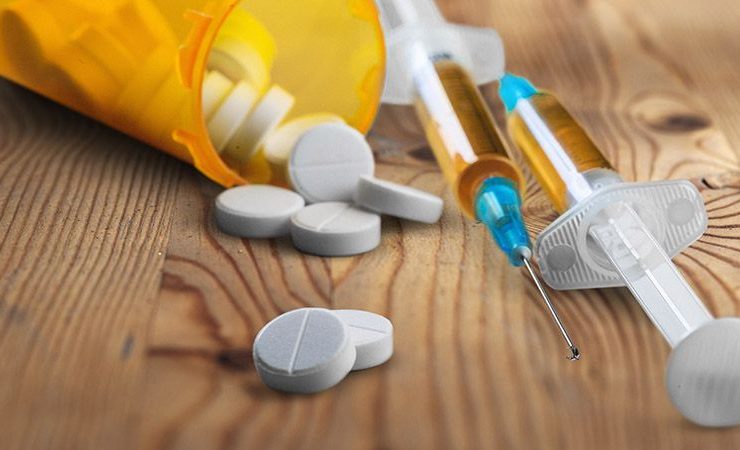What Are Opioids?
Opium seed is a derivative of the opium poppy plant. Pharmaceutical processing of opium seeds results in the production of opioids. Opioids, also known as painkillers, are prescription drugs for treating recurring or severe pain. Illegal opioids come in the form of drugs like heroin.
Opioids may be medications for pain relief, but they have addictive tendencies. These tendencies are results of opioid capacity to influence the brain to produce various effects. Such effects include unusual relaxation, utter bliss, and over-ecstatic actions. Therefore, the desire to experience these “feel-good” can cause opioid addiction.
You’re likely unsure of your opioid use level if you’re reading this. You may also be seeking treatment for opioid addiction. Maybe you’re even wondering about the possibility of opioid recovery. Here, we will be answering these questions.
Similarly, you’ll learn other important information, such as opioid side effects. But, first, let’s understand why opioids cause intoxication.
Why Opioids Intoxicate You
The first question we would answer here is – what are opioids made up of? Opioid drugs are usually a combination of some substances. These substances include oxycodone, oxymorphone, artificial synthetic narcotics, and morphine. When you abuse these opioid substances, they can make you feel intense ecstasy or ‘highness.’
However, opioid intoxication entails more than getting ‘high.’ The condition of opioid intoxication is that critical moment when you start experiencing breakdown symptoms. These symptoms may make you sick physically and mentally.
Opioid intoxication has been responsible for almost 13,000 Canadian deaths between 2016 and 2019. So are opioids bad for you? No. But when you abuse them in specific ways, you may become a victim of their intoxication, which is terrible for you.
Causes of Opioid Intoxication
Several factors may lead to opioid intoxication. They could be intentional or unintentional.
Unintentional Factors
- The pharmacist isn’t aware that a patient is already on a variant of an opioid. The indeliberate ingestion of both opioid drugs can cause intoxication.
- Opioid ingestion by patients with health issues that come with an allergy to opioids. Such health issues include kidney problems.
- If a patient unknowingly takes sleeping pills in addition to their opioid prescription.
Intentional Factors
Intentional factors are peculiar to those who intentionally use opioids to “Feel Good.” They get to the point of intoxication when they:
- Using too many opioids
- Mix opioids with other substances like alcohol.
- Ingesting opioids in irregular manners such as smoking and snorting.
- Not being weather-sensitive about opioids. For example, taking opioids during hot weather is lethal. It can lead to severe dehydration.
Side Effects of Using Opioids
When you overdose on opioids at once, you’re at risk of intoxication. Also, a small but constant intake of opioids inevitably builds tolerance and dependence for it in your body. Either way, you’re liable to opioid abuse problems.
The main side effect of using opioids is addiction. In medical terms, opiate addiction is known as “opioid use disorder.” The “addiction” side effect is the umbrella under which other side effects find full manifestation.
The following are side effects of opioid abuse:
Gastrointestinal Issues
When you overdose on opioids, you may start experiencing nauseating feelings. This nausea may make you start vomiting uncontrollably. First aid for such cases is lying on your back for a while and seeing a physician as soon as possible.
 Constipation Issues
Constipation Issues
Constipation is a consistent side effect of taking opioids, even when it’s an official prescription. This bowel stiffness is because food doesn’t move fast in your body system, thus making it difficult for you to defecate. Now imagine the level of constipation that may be felt by someone abusing opioids. You may drink water to ease the feeling and see a doctor as soon as possible.
Cognitive Issues
Another effect of opioid abuse is developing cognition or comprehension issues. Your self-awareness and mental alertness drop helplessly in situations like this. You may have issues such as:
- Inability to concentrate
- Drowsiness
- Unclear thoughts and incoherent expressions
In this state, you shouldn’t engage in delicate activities such as driving or babysitting.
Opioid use side effects also classify into two, based on longevity. These are short-term and long-term effects. For both classes, there are physical and psychological effects.
Short-term Physical and Psychological Effects
Short-term physical effects of opioid abuse include:
- Appetite distortion
- Insomnia
- Tense heartbeat
- Impaired speech
- Cognitive disarray
- Short pseudo bliss
- Plan disruption
Short-term psychological effects of opioid abuse include:
- Difficulty in stopping opioid use.
- Intellectual recession, e.g., woeful academic performances.
- Inability to maintain cleanliness
- Appearance deterioration
- Impulsive decisions and dangerous behaviours
- Sudden aversion for usual hobbies
Long-term Effects
Long-term psychological effects of opioid abuse include:
- Paranoia
- Anxiety
- Panic
- Hallucination
- Unprovoked aggression
- Depression
- Cognitive decadence
Long-term physical effects of opioid abuse include:
- Cardiovascular Illness: Opioids can cause severe harm to blood vessels and the heart.
- Coronary Artery Disease: Opioid misuse can lead to long-term issues such as heart attack and arrhythmia.
- Respiratory Issues: Those who smoke opioids are liable to respiratory system breakdown. Opioids tamper with breath flow by rendering nervous system receptors useless. The difficulty in respiration can lead to heavy snores.
- Kidney Damage: The kidney is a vital organ in the body. It helps in filtering the body of waste. Similarly, the kidney may try to dispose of the excess opioid intake for a while. Eventually, it’ll lose its strength against the extra intake of opioids. The result is kidney failures and damage.
- Liver Damage: Opioid abuse is very harmful to your liver cells. It puts the cells at risk of inflammation and possible failure.
Opioid administration without a doctor’s prescription and keen supervision is wrong. As a patient officially under opioid medication, you may experience side effects. To avoid opioid addiction or chronic side effects, use opioids cautiously and stick to the doctor’s directions.
Signs You’re Addicted to Opioids
You may want to know how to recognize opioid addiction in yourself or a loved one. That’s fine.
Symptoms of addiction to opioids may vary from person to person. In some, it’s acute. In others, it’s subtle. Some people’s systems make symptoms relatively unnoticeable until they unknowingly cross the intake threshold and experience a disastrous breakdown.
The signs of opioid abuse, when evident, may be physical, psychological, and behavioural. Though addiction evidence may vary depending on the person, there are unmissable addiction signs. One is the inability to resist urges to take opioids. Another closely related addiction sign is the inability of a patient to adhere to a physician’s opioid prescription.
Other evident symptoms of opioid abuse include:
- Slow breath rate
- Physiological Apprehension
- Impaired decision making
- Ignoring obligations
- Spontaneous anger
- Irritation
- Depression
- Anxiety
- Panic attacks
- Inability to sleep and wakeup without external influence
- Chronic snoring
- Fluctuating pulse
- Incessant vomit
- Constant fainting
- Shrinking eye pupil
If you’re on an opioid prescription and experiencing these signs, you may need to see your physician immediately. If you suspect these symptoms in your loved one, too, they might need to check for addiction possibilities. Whichever it is, seek medical treatment as soon as possible.
Related Article: 10 Tips to Help Beat Amphetamine Addiction
Is Opioid Recovery Possible?
The answer to this heading’s question is – Yes! Opioid addiction is a disorder with treatment. So opioid recovery is 100% possible.
In-depth research on the makeup of addiction and treatment for opioid disorder bears positive news. This news includes methods that can aid addiction patients to abandon drugs and return to healthy living. Collapsing these ways and practices into a process is what medics call recovery or rehabilitation.
Is Rehabilitation or Recovery a Cure for Opioid Addiction?
Addiction is basically like chronic diseases such as asthma. They do not have outright cures. However, they can get excellent management. Opioid addiction treatment entails giving patients conducive conditions to resist addiction effects, especially on their psychology.
Does a Relapse Mean Opioid Treatment Failed?
The answer to this heading is no. Opioid addiction has different chronic levels. Usually, the very chronic cases may experience relapse. However, such relapses are usually projections in the recovery process.
The need for relapse to be part of the chronic opioid addiction recovery process is even going fast extinct. The latest rehabilitation methods aim to ultimately prevent relapse during and after recovery treatments.
It’s important to note that opioid addiction relapse shares similar traits with chronic illnesses like asthma. For example, asthmatic patients are susceptible to attack if they don’t take their medications duly. It goes the same way for opioid recovery patients who ignore their treatment plans.
Treating opioid addiction involves a thorough struggle to dissolve chronic behaviours. This inevitable struggle is why relapse should not be immediately played as treatment failure. Instead, it should indicate further treatment and more intricate recovery strategies.
Does This Mean Relapse Is Always Normal?
The answer to this heading is no. There are instances when a recovering patient relapses and opioid consumption is excessive. In such cases, they need immediate attention. This urgency is because their bodies have undergone serious cleansing, and they can easily overdose lethally if not quickly given attention.
An overdose in such a clean state can result in life-threatening situations or even death.
What Makes An Effective Treatment?
For opioid addiction, evaluation of the patient’s state should come first. Afterwards, medications alongside behavioural and counselling therapies should follow.
The medications are meant to help opioid addiction patients detoxify from the drug. However, kindly note that detoxification does not equate to treatment. It’s simply cleansing your body system for treatment. Detoxification without further treatment will most likely lead to a more significant relapse.
Medications for Opioid Addiction Treatment
Depending on the stage of opioid addiction treatment, different medications may prove helpful. Some are meant to help the patient halt immediate abuse. Another class keeps addiction patients in treatment shape. A variety also prevents relapse.
Some of these medications include Opioid
methadone and buprenorphine. In addition, these are the primary uses of these medications during opioid treatment:
Detox Withdrawal Management
Some withdrawal symptoms accompany the detoxification process. This process is when the patient’s body is purified of opioid content and stops taking it. The withdrawal signs include physical, psychological, and mental ones.
Patients may experience insomnia, depression, and agitation. Certain medications are designed to minimize the effects of these symptoms and make opioid abstinence easier.
Sticking to Treatment
The brain has likely been altered with its express recognition of and excessive dependence on opioids. This is why some medications are meant to help patients’ brains adapt to the absence of opioids.
These medications take effect steadily. The steady approach gradually reduces opioid cravings and regulates sensory system distortion.
Relapse Prevention.
Medications at this stage help patients abstain better from opioids after the main treatment.
Therapy Methods for Opioid Addiction Treatment
Therapies are crucial processes during and after opioid addiction treatment. They help keep the patient in shape for a long time.
There are different forms of therapies. They include the following:
Behavioural Therapy
Behavioural therapies enable opioid addiction patients to transform their drug use behaviours and dispositions. This ability will give patients the needed resilience to resist relapse temptations. Also, behavioural therapies help improve the results of medications to ensure patients stay longer in treatment.
Contingency Management Therapy
This form of therapy engages the use of incentives to foster drug abstinence. In other words, patients get rewards for staying opioid-free at different milestones. For example, it may be for attending therapy, being active during a therapy session, or taking medications properly.
Cognitive-behavioural Therapy
Cognition-related therapy helps opioid addiction patients identify and avoid trends or scenarios that might prompt them to use drugs.
Family Therapy
Family therapy especially involves helping young people recover from drug use by indulging their families in the process. This involvement helps them recover faster and helps reduce the chances of relapse.
Motivational Enhancement Therapy
In motivationally enhanced therapy, a patient’s recovery willingness is essential. That desire to change is forged into a tool to inspire them to transform.
Twelve-step Facilitation
TSF is a therapy usually done exclusively for an individual. It usually takes 12 weeks to deliver an entire session. This session further prepares the person for a 12-step mutual support program.
This program is meant to socially and complimentarily support other treatment processes. But, more importantly, the Twelve-step facilitation adheres to the 12-step fundamentals of acceptance and surrender, alongside active recovery involvement.
Related Article: How to Prevent Opioid Abuse
Summary
Opioids may have medical validation for pain treatment. However, their susceptibility to abuse makes them a concern for discussion.
Even when you’re medically meant to use opioids, you’re still liable to side effects and intoxication. A 2017 opioid abuse statistics in Canada buttresses this assertion. The abuse index reveals that patients with opioid usage from doctor’s prescriptions were more than those whose sources were illicit acquisitions.
Addiction is a possibility once you start using opioids. However, opioid addiction is very treatable.
Here at Inspire Change Wellness Centre, we provide qualitative opioid addiction treatment programs. Our specialists will evaluate your addiction level and customize a perfect treatment for you. Call us today to learn more.
Start your recovery today.


 Constipation Issues
Constipation Issues

